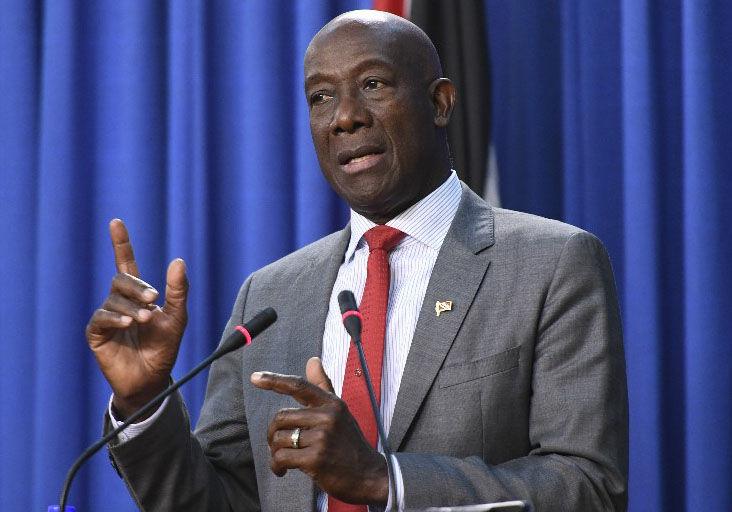Trinidad and Tobago Prime Minister, Dr. Keith Rowley believes that in the face of rising tensions surrounding the border controversy between Guyana and Venezuela, “dialogue” ought to be the response. He relayed this position on November 20 during a press briefing where he was asked to weigh in on Venezuela’s planned referendum, which seeks public support to annex Guyana’s Essequibo region.
“We are confident that the governments of Venezuela and Guyana would know that CARICOM’s position, that our region must be and remain a zone of peace, is the best position for all of us. And secondly, we all know that even in the darkest hour, if difficulties arise, the response ought to be dialogue, dialogue, and dialogue,” Rowley noted. He currently serves as the lead Prime Minister for safety and security in CARICOM’s quasi Cabinet.
It was after several decades of unsuccessful dialogue aimed at resolving the controversy, that the United Nations Secretary-General referred the matter to the International Court of Justice. Subsequently, in March 2018, Guyana lodged its case seeking a comprehensive and conclusive resolution by way of validation of an 1899 Arbitral Award that effectively settled the land boundary between the two countries.
U.S condemns Venezuela aggression towards Guyana, pledges support for ICJ proceedings
Venezuela’s President, Nicolas Maduro had recently called for a direct dialogue with Guyana’s President, Dr. Mohamed Irfaan Ali, via posts on X (formerly Twitter). This invitation was seen by Guyana as another attempt by Venezuela to disregard international law and the ICJ’s repeated affirmations of its authority to rule on the ongoing case between the two countries.
This border controversy is of particular interest to Trinidad since it is currently pursuing the Dragon Gas development with Venezuela. And Rowley hinted that there are risks to its deal with the Maduro-led nation.
“…there are always risks… The last thing we want is for us not to be in a period of peace and a zone of peace,” he said. “I do not have a crystal ball, but things, especially where diplomatic matters are concerned… I have no forecast to make as to how it will go. But I could tell you what I would not like to see. I would not like to see the relationship between Venezuela and Guyana deteriorate to a point where consequent actions would negatively damage all of us because all of us will be damaged… because the Dragon gas that we are after, Venezuela has an interest there…” he continued.
Venezuela reinvigorated its claims to the Essequibo territory over the past several weeks after being irked by Guyana’s maiden bid round. The new wave of aggression includes threats and the posting of Venezuelan military at the shared border. The Maduro regime also plans to hold a referendum on December 3 that seeks legitimacy for the annexation of the Essequibo region. On this basis, Guyana has asked the ICJ for measures to block this move.



